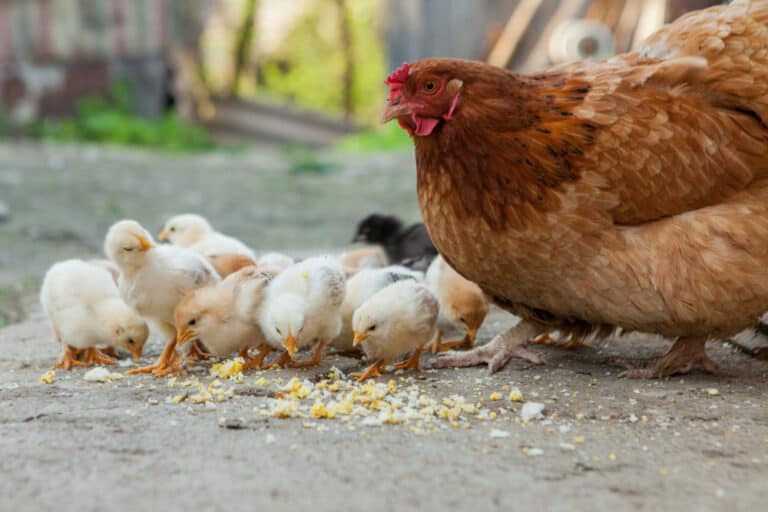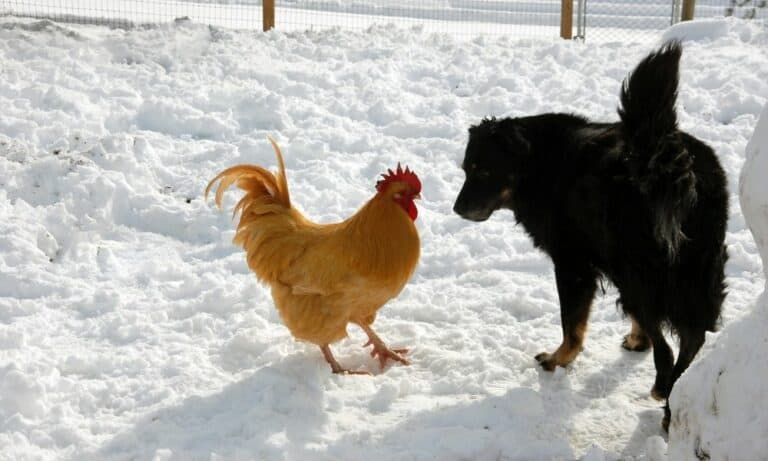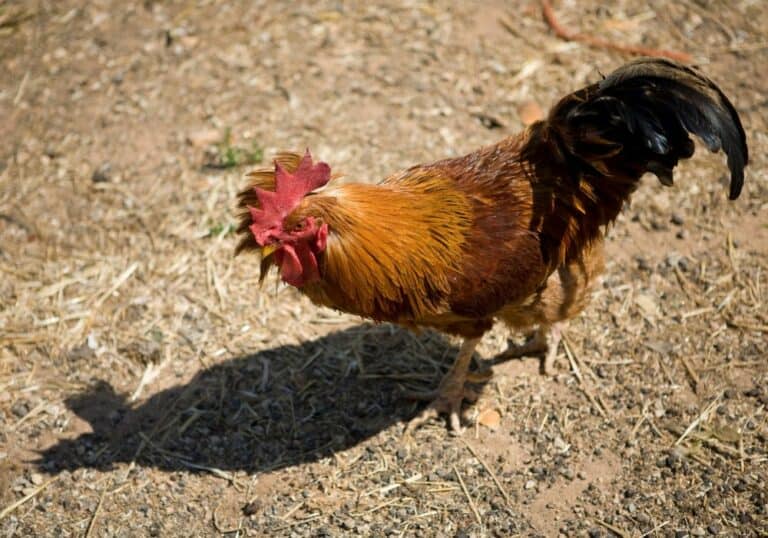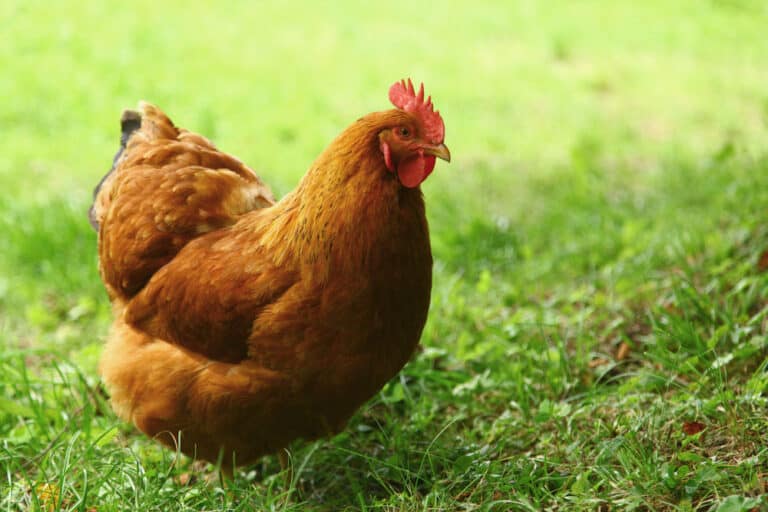Are you thinking about raising chickens? If so, one of the most crucial questions is, “How much space do chickens need?”
Like people or other animals, chickens also like to have personal space and roam instead of being crammed with other chickens in a small coop. As a chicken keeper, it is in your interest to provide your flock with the best conditions, which include enough space.
So, they generally need 4 or 8 square feet of coop space per bird and around 10 to 15 square feet of indoor space. However, the size of the coop depends on several factors!
What Factors Affect the Size of the Chicken Coop?
Obviously, if you want to raise and keep chickens, you must buy or build a coop for them and ensure some indoor space so they can roam. According to a study, free-range chickens are considered healthier and happier than caged chickens.
So, let’s see what factors affect the size of your chicken coop!
1. Size of Your Birds
If we tackle this issue from a logical standpoint, the first factor you need to consider is the chicken’s size. Although most people think that all chickens are more or less the same size, that is not quite correct.
Some of the most commonly raised chickens in the US are bantams, standard chickens, and large! So, what’s the difference? Bantams are generally a small breed and need less space than standard chickens because they are smaller.
However, different breeds of Bantam chickens exist, and they do come in all shapes and sizes, so keep that in your mind. Despite their size, Bantam chickens are very lively and like to fly, so we suggest you get some of those higher perches.
Standard-sized hens or medium-sized chickens need slightly more space because of their size, but they rarely fly and like to be close to the ground. Some of the large breeds include Cochins, Brahmas, and Jersey Giants.
Obviously, if you go for a larger chicken breed, you will need more space, meaning they need a bigger chicken coop. The amount of space also depends on whether your chickens are free-range. If not, it would be best to buy a larger coop.
2. Weather Conditions
The climate and weather conditions in your area can affect the size and type of chicken coop. Interestingly, although chickens are tough animals, rain and snow do not amuse them.
Occasional rain and snow are not problematic, but frequent and heavy exposure can be detrimental to them. So, what does this mean for your chicken coop?
It means you do not need to build a large coop if you live in an area with a moderate climate, and you can let them free range during the entire year.
However, if you live in a colder area with much precipitation and your chickens spend the majority of winter months in the coop, you ought to buy or build a bigger coop so they can be comfortable.
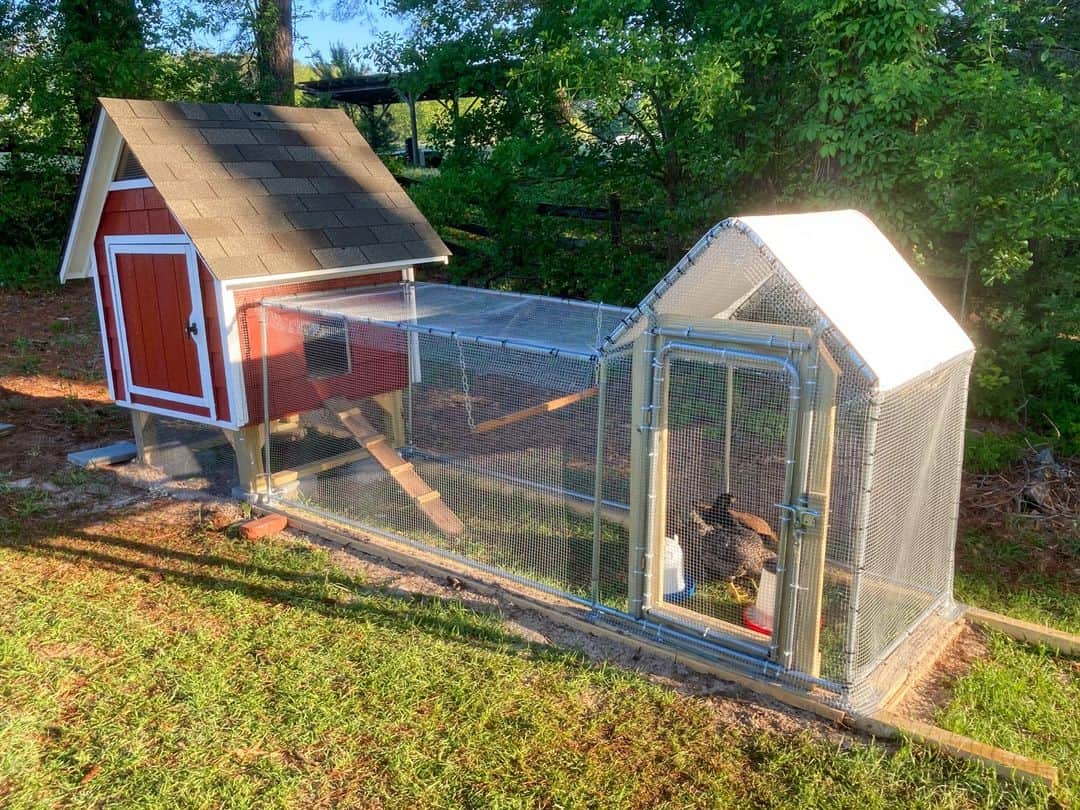
3. Chicken’s Temperament
So, what is meant by chickens’ temperament, and how does this affect the size of the chicken coop? Well, chickens also have personalities and temperaments, and certain chicken breeds are known to be very aggressive, meaning they will need some space and privacy!
For example, Asil and Brahma chickens tend to be very aggressive and thus should be frequently monitored as they tend to fight each other. On the other hand, docile breeds, such as Silkies, do not mind sharing their personal space.
4. Number of Chickens
Although this is self-explanatory, we will discuss this factor because it can happen that those new to the “poultry world” make mistakes when choosing the chicken breed and the number of chickens.
If you want to have a large flock, then it would be best to ensure plenty of space because you want to avoid overcrowding.
For example, to acquire around 50 chickens, you will need a 24 x 8 chicken coop, which provides around 190 square feet of space. However, you might need a bigger coop if the chickens are a larger breed.
5. Broodiness
In case you are not familiar, broodiness refers to a chicken’s behavioral tendency to sit on eggs to incubate them. Some chickens exhibit this maternal behavior because they want to become mothers.
So, what happens is that chickens stop laying eggs and start focusing on incubating and hatching them. This can be problematic if you are looking to maximize egg production. How does broodiness affect the size of a chicken coop?
Broodiness affects how many nesting boxes you will have to buy and install, as other hens also need space for laying eggs in case some decide to occupy it. The best is to have a couple of nesting boxes at hand so you are always ready for every scenario.
You can buy either individual nesting boxes for privacy or have a large nesting box.
Coop Sizes and Run Space
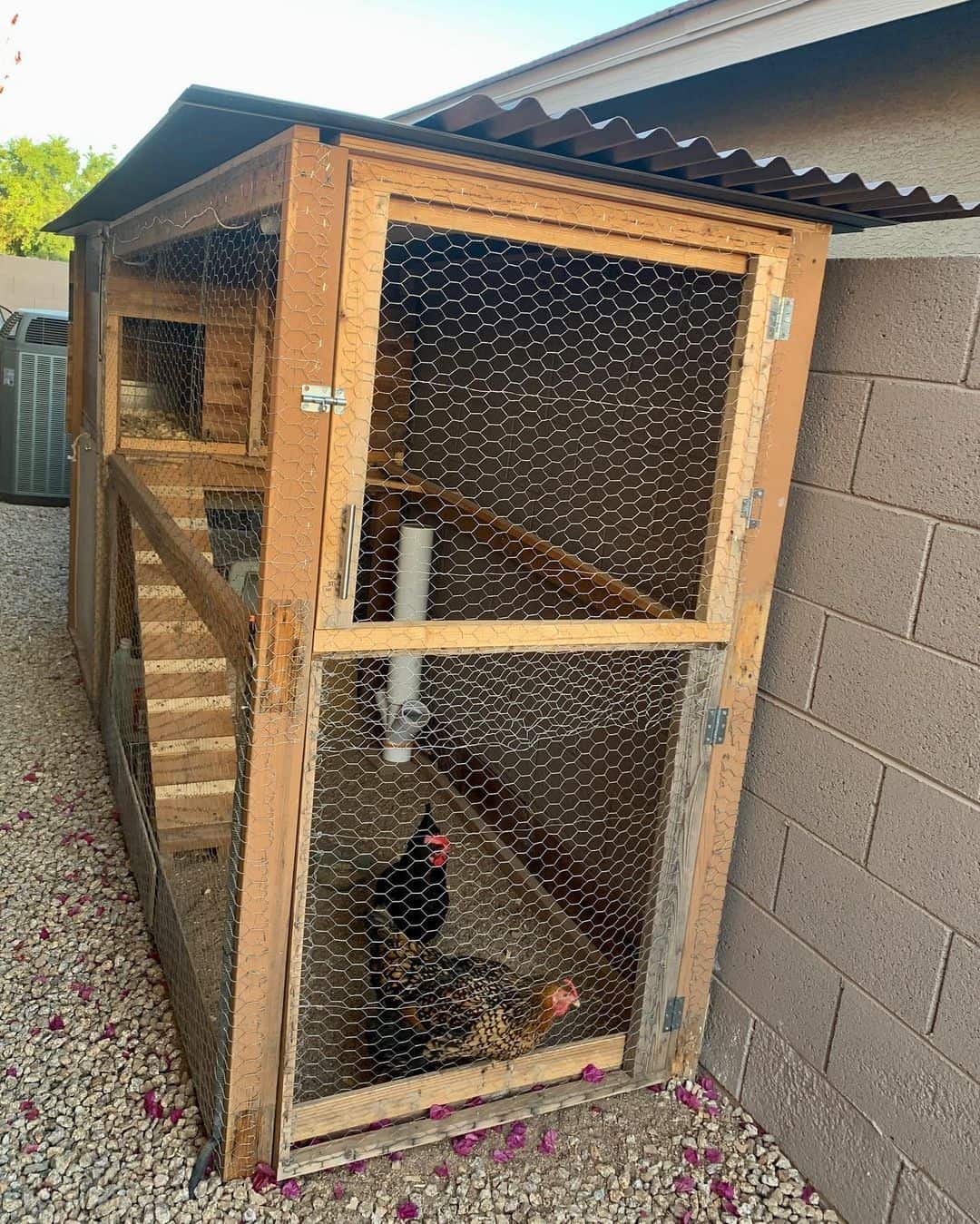
So, how much space do your chickens need? We have covered the major factors that affect the size of your coop, and now let’s go over some other vital information that will help you choose the right coop size.
As noted, the size and the number of your chickens are vital for coop size. Therefore, the best way to determine which coop size is adequate is to multiply the number of chicks by the recommended square footage for that specific breed.
For example, Bantam chickens need around 2 square feet of coop space to be comfortable. So, if you want 10 Bantam chickens, you will need around 20 square feet of space.
It would also be great to include several high perches and dust bathing areas (yes, they love to bathe in dust).
Regarding the run space, larger breeds need around 15 square feet per bird, while standard or medium-sized chickens need 8-10 square feet. The smallest chickens, such as Bantam, need around 5 square feet per bird.
If you have an enclosed backyard, you can calculate how many chickens you can keep using the above information. The more space you have, the better for them.
The run space is very important and if you want to start keeping chickens, think about the area you can use as their free-roaming area without predators, if possible. Also, do not forget to predator-proof your coop.
What Happens If Chickens Do Not Have Enough Space?
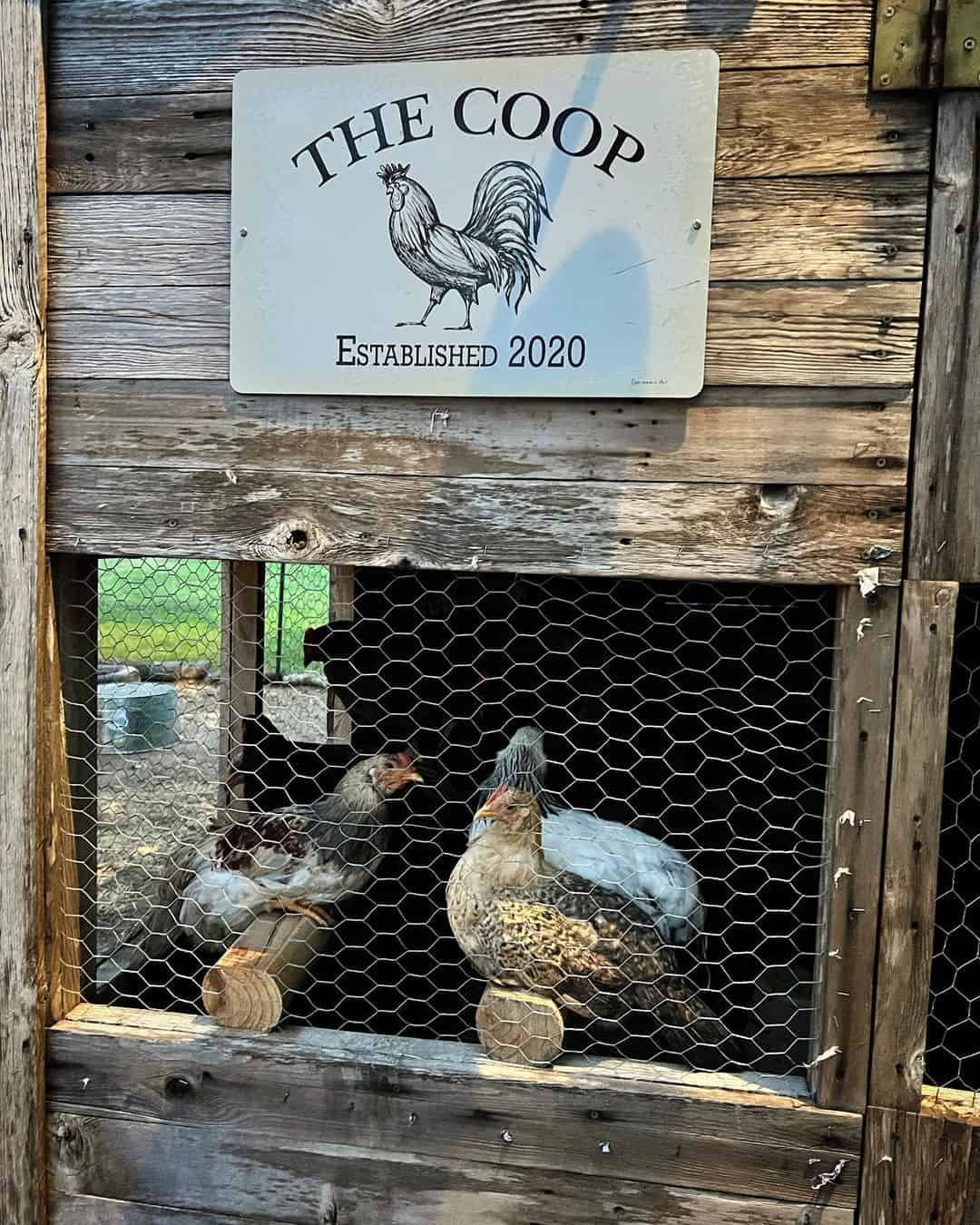
As noted, the more space chickens have, they will be happier, produce better eggs and have more quality meat. Therefore, cramming them into a smaller space is not a good idea, and here is why!
1. Pecking
Considering that chickens do not have opposable thumbs, they explore the world with their beaks. Whenever you see a chicken, it almost always pecks something on the ground.
Therefore, if you rob them of their space, they can suffer from pecking and start pecking each other, especially if they see a bug on their fellow chicken.
They will try to peck that bug from their fellow-mate and possibly injure them because they have very sharp beaks and are not known as gentle animals.
This can cause various infections and make your chicken sick, affecting the quality of eggs if it’s a laying hen.
2. Cannibalism
However, a bigger issue is cannibalism, a consequence of overcrowding or feed restriction.
If the chicken does not have enough room in the coop, there is a great possibility that the pecking order might get hindered due to aggression and dominance issues in the flock. Also, bullying is a common occurrence in overcrowded coops.
Furthermore, when your coop is overcrowded, the chickens will be forced to leave droppings everywhere, including the water bowl.
3. Bacteria /Parasites
Droppings can cause major problems because a frequent accumulation of chicken poop can lead to forming of various bacteria. Also, poultry is generally known to carry Salmonella and Campylobacter.
Therefore, they must have adequate space and room to roam! Also, it is unsurprising to see parasites, such as mites and lice, appearing in small chicken coops. A small, overcrowded place is a great playground for various bacteria and pests.
All of these will make your chicken unhappy and unhealthy, which beats the purpose of keeping chickens. As noted, a happy chicken is the first step to high-quality eggs and meat.
Although it may sound funny, if the chicken is stressed and feels uncomfortable, that may affect their laying eggs and behavior.
Conclusion
How much space your chickens need depends on several factors, such as their size, breed, temperament, number of chicks, broodiness, and weather condition or climate. It is important that you follow the recommended square footage for chicken breeds.
Also, we have covered how to calculate the coop size and run space for your chickens and what happens if you overcrowd the chicken coop! Have you ever had chicken, and how did you choose the best coop? Please share your experience!
If you have any questions, ask away!

